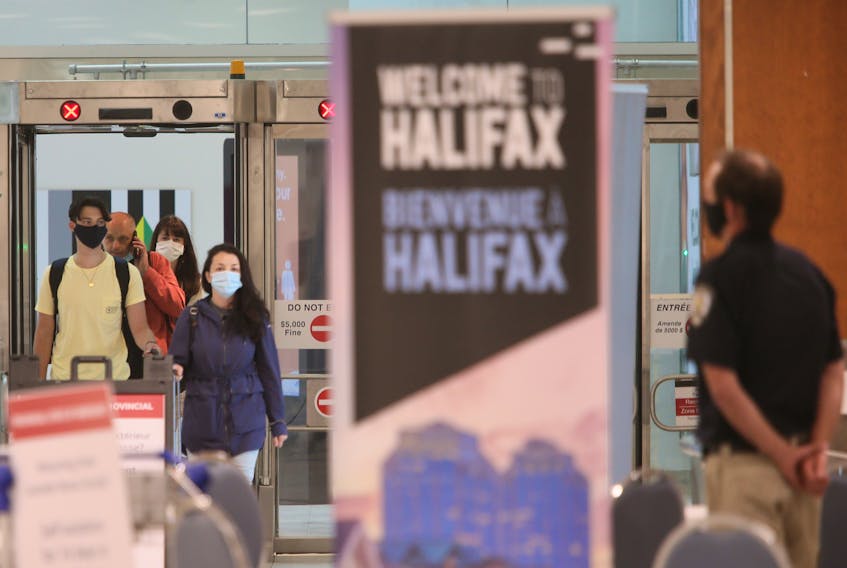It’s reason for optimism, but it’s not the ultimate solution.
Nat Richard, executive director of the Moncton, N.B.-based Lobster Processors Association, told SaltWire Ottawa’s decision last week to tweak the travel rules for temporary foreign workers eliminates one cost for employers.
On Friday Prime Minister Justin Trudeau said temporary foreign workers won’t have to quarantine for three days in a hotel in Toronto or Montreal on their arrival to Canada.
Instead, they will be able to fly on to their final destination and quarantine there for two weeks before starting work.
“It’s a positive move in the sense that Ottawa is trying to find some flexibility,” said Richard.
However, the new rules are only in effect until March 14.
The big question, said Richard, is whether this rule will still apply past March 14.
“In the seafood industry, the lobster and crab processing seasons don’t really start until April and May,” he said. “What will this look like past March 14?”
Each year about 4,000 workers arrive from Mexico, Jamaica and the Caribbean to work in fish plants and on farms on the East Coast, with many of them bound for Nova Scotia and Prince Edward Island.
Ottawa’s decision in January to suspend all commercial flights from Mexico and to limit international arrivals to four major airports, created some challenging logistics for the fish and farming businesses that rely on temporary foreign workers.
For one thing, it meant switching to more expensive charter flights to get the workers here.

Marilyn Clarke of Port to Port Enterprises in Halifax says it’s been long hours trying to arrange flights alone.
“I’m booking flights today, actually, for about 180 Mexicans,” she told SaltWire Monday afternoon.
And that’s no longer as simple as just buying each one of them a ticket on a commercial flight.
“It’s complicated. We have people from all over Mexico that we have to bring to a central location to fill up a charter aircraft,” she said.
It also means having each one of them tested 72 hours before they get on the charter flight, more testing when they land in Toronto, another flight to the East Coast and sorting out accommodations for the two-week quarantine when they get to Nova Scotia.
Consider, as well, she said that this is not the busy season for hiring foreign workers.
"I think there’s a lot of goodwill here from the federal government.” — Nat Richard
The hiring usually ramps up in April, when crab and lobster seasons get started, and farms start prepping for the 2021 season.
And no one knows what the regulations will be after March 14, she said. Therefore, no one can start booking flights or accommodations or even work visas for their foreign staffers until Ottawa decides what the rules will be for the season.
Clarke still hopes there might be a way for the charter flights of foreign workers to fly directly into Halifax, like they did last year, to start their quarantine immediately upon arrival, rather than having to make that extra stop in Toronto.
“We did this last summer, bringing people here directly, and we did it safely. There were no COVID outbreaks because of it and I think we can do it safely again this year,” said Clarke.
Meanwhile, she said, businesses can’t wait much longer to make plans.
There are work visas to acquire, flights to book and accommodations to pay for.
And until they know what the rules will be for April and May, they can’t book anything.
Richard is holding on to optimism.
“We’re taking a wait-and-see approach,” he said, “but I’m feeling good about this. I think there’s a lot of goodwill here from the federal government.”
[email protected] | Twitter: @BarbDeanSimmons









